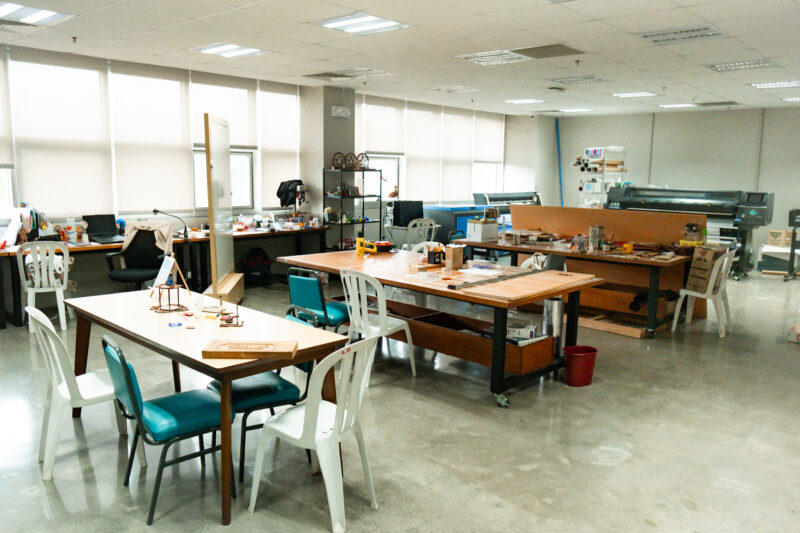THE CHRISTIAN Union for Socialist and Democratic Advancement (Crusada), along with the Political Science Department, held a forum on climate change and social justice on December 16 at the Ricardo and Dr. Rosita Leong Hall auditorium.
The speakers were the following: University President Jose Ramon Villarin, SJ, Climate Change Commissioner Yeb Saño and Philosophy Associate Professor Agustin Rodriguez, PhD.
Crusada aimed to accomplish two goals with the forum: To highlight the multifaceted nature of climate change and to explain how climate is a social justice issue.
Crusada is the sole accredited political party in the Ateneo.
A social issue
Villarin and Rodriguez both said that everyone should be concerned about climate change because it is a social issue.
According to them, the constant world population growth plays a vital role in the effects of climate change.
“With greater growth and greater consumption come the reduction and destruction of the environment,” Rodriguez said.
Rodriguez said that higher levels of consumption give humans a greater sense of security. Consequently, this causes the development of a culture of exploitation of the environment.
Meanwhile, Villarin said that the world population growth is leading to a rise in the Earth’s temperature, thereby increasing the climate change risks humans must face.
Villarin also pointed out that the growth in world population is directly proportional to the amount of carbon emissions being released into the atmosphere. He added that the harmful effects of such carbon emissions will affect everyone.
“Whatever emissions are being emitted in the US, [someone] in Bolivia will get it,” he said.
Villarin also discussed the systematic inequality that concerns climate change, pointing out that the carbon emissions of developed countries greatly affect the environments of developing countries.
“‘Di bale na kung ikaw ‘yung nagtatapon ng basura, ikaw rin ‘yung nasasaktan, pero [ang nangyayari], ikaw ‘yung nagtatapon ng basura, iba ‘yung nasasaktan (It would be more acceptable if you will suffer the consequences of throwing your own trash. However, what is happening today is that someone else is affected by what you throw away),” said Villarin.
Making an agreement
In his speech during the forum, Saño discussed what must be done given the reality of climate change.
According to him, the task of the people today is to understand and properly act on the impact of climate change to the environment.
“Today, as a generation, as a society [and] as a global community, [we have] to understand climate change and perhaps understand it so that we can change the way we pursue our future… It is not a very bright future, but we can change it,” said Saño.
He further said that many people consider climate change the greatest threat to humanity.
“A 2°C change is already a catastrophic scenario and is not just a threat to development, not just a threat to well-being—it is a threat to human rights. That’s why it is important for us to face this problem,” he said.
For Saño, climate change is a threat to human rights as it infringes the right to life, the right to safe homes and even the right to education because of the catastrophic disasters caused by climate change.
In order to address the issue, he said, “The situation requires many different kinds of cooperation and compromise, much of which can only be achieved through difficult multilateral negotiations.”
Saño also discussed the growing problem of climate change with regard to the United Nations (UN) climate change negotiations. He stated how little development is in progress because no agreement between the countries involved has been made.
One of the negotiations he cited was the Kyoto Protocol, an international agreement that sets internationally binding emission reductions targets. The period for the execution of this reduction began in 2008 and ended in 2012.
However, several countries failed to adhere to the agreement, including China and the United States because they failed to meet their target carbon emission reduction.
Saño also cited the 2011 UN Climate Change Conference in Durban, South Africa and the 2012 UN Climate Change Conference in Doha, Qatar. Both were unable to carry out substantial action to address the climate change issue.
However, Saño said that the international negotiations being done by the United Nations Framework Convention on Climate Change (UNFCCC) is a difficult task, as it requires 193 countries to cooperate to arrive at an agreement.
“No treaty in the world has more signatories or parties than the [UNFCCC], and you need all these 193 countries to work together…to arrive at an agreement…that is important because one or two or three or even 20 countries cannot solve climate change. It has to be the entire world,” he said.
Reports with Billy B. Poon






